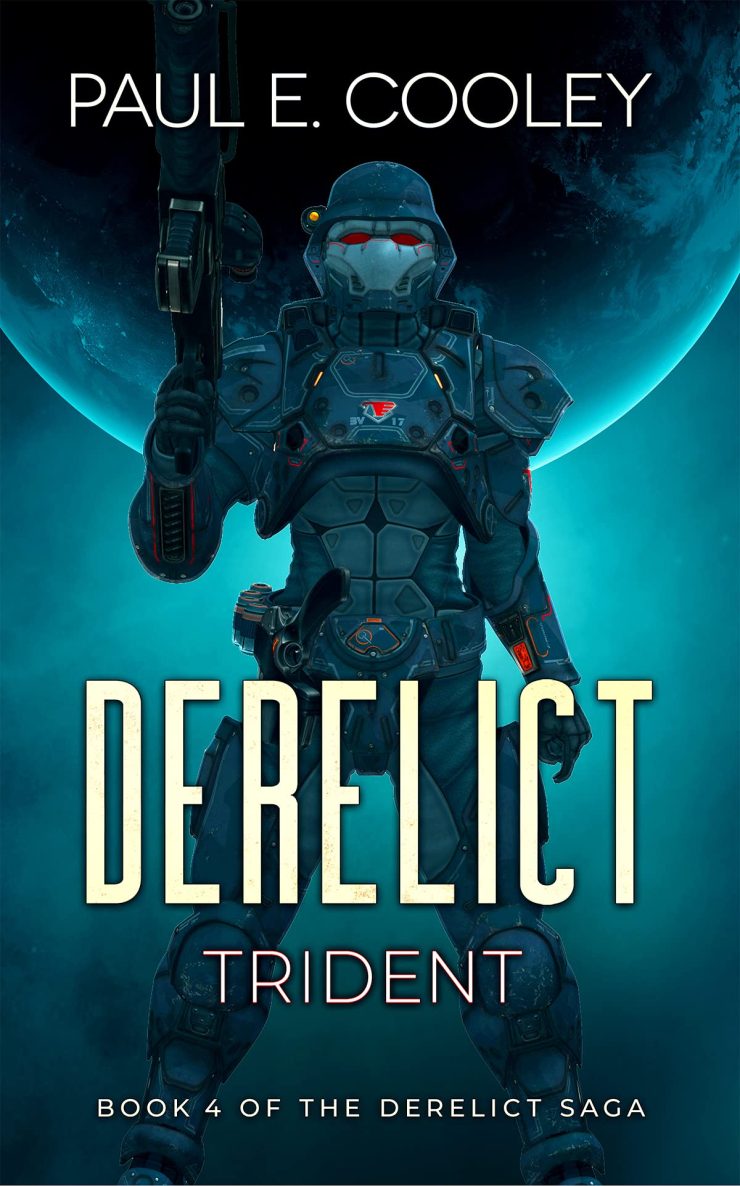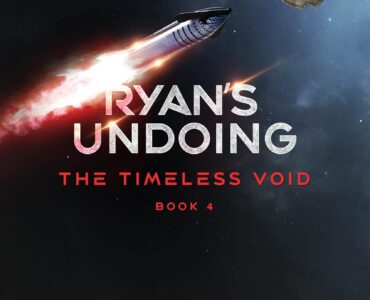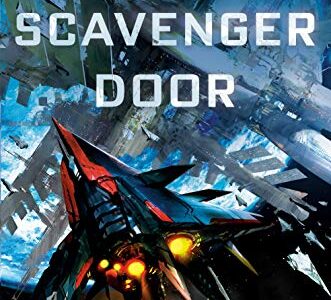Pros
- Interesting conclusion that leaves readers with a sense of wonder for story and the future of the characters and humanity
- Some great action scenes
- Interesting plot twists
Cons
- Conclusion isn’t quite what was expected and leaves the story open
- Book feels as though it goes to many places instead of wrapping up nicely
- Change in perspective can be a little disconcerting
Trident Review
Trident by Paul E. Cooley concludes the exciting adventures of the crew of the rescue ship S&R Black and its seemingly standard retrieval mission of the derelict colony ship Mira sent out decades ago to Proxima Centauri and presumed lost.
While the previous three books focused more on the local or immediate issues of exploration and survival, Trident goes beyond the immediate needs of the marines onboard S&R Black to reveal a perspective of the solar system that was desperately needed in order to provide context for the entire series.
This conclusion to the Derelict Saga finds the marines finally arriving home to Neptune station only to discover the horrible truth of the Mira, the artificial intelligences known as the Trio, and the monsters that chased them from Mira, Pluto, and now perhaps the rest of the solar system.
The questions of the origins these Kuiper Belt objects and the beacon are never quite answered, but some few tantalizing hints are provided through some tidbits of information fed to characters from the vast repository of knowledge patiently gathered by the now evolved sentient artificial intelligences.
What little information they provide paints a bleak picture of a galaxy ravaged of life and resources by these beings that come from some other place. What’s worse, the question of loyalties amid this existential threat is left up in the air by the conclusion. As a result, there’s a sense of anxiety for the humanity and the characters who survived this initial onslaught.
The conclusion to the series leaves open the possibility that the author may explore this uncertain future in another series. Many questions remain, and the chaos left behind by the sentient artificial intelligences remains to be resolved.
Unlike previous books, Trident switches among the different perspectives of the marines who have now split up in order to accomplish their goals. This strategy may be familiar to fantasy readers, but it’s a little confusing for science fiction stories that tend to be more limited in perspective.
Also a little confusing is the broadening of the scope of the story. While some of that is expected, like the revelation about the governing artificial intelligences, the consequences of their decision, coupled with the revelation about the Kuiper Belt objects, expands the story without providing much resolution.
Still, the action scenes are just as packed with action and suspenseful as previous books, and as this is the last book, there’s not much protecting the characters readers have come to love. That is, these characters lose their plot armor.
Trident by Paul E. Cooley leaves fans of Derelict Saga with an anxious conclusion instead of a nicely wrapped up ending, yet for many readers, it’s this kind of conclusion that reflects a more realistic fiction story. After all, life isn’t perfect, so endings to books shouldn’t have to be either.
Read reviews of other great military science fiction books below.



